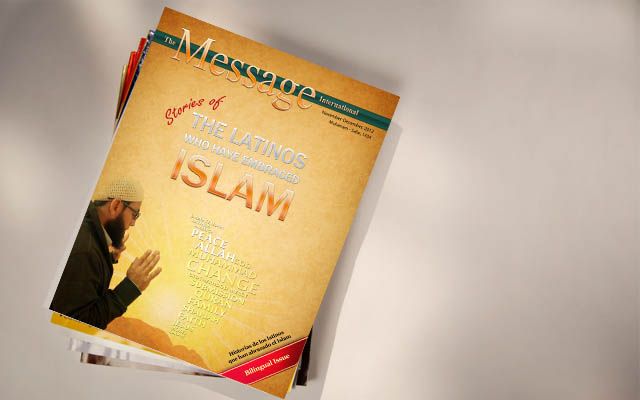The era of postmodernism followed the late modern period which stretched from the 19th century to the mid 20th century. Many scholars point to the 1960s and 1970s as the years of formative development in postmodern thought. The mainly philosophical movement of postmodernism typically claims, among other things, that there is no objective truth or reality; that reason and logic are constructed by a particular intellectual tradition that is bound by time and ideology and, therefore, not universally valid; that there is no intrinsic and universal human nature; and that all knowledge is relative and prone to subjective distortion. Thus, postmodernism rejects religious metanarratives about God, reality, the world, and human existence.
It is crucial that both scholars and the general community should be aware of the clear trends in postmodern thought and their influences on society. It is not sufficient for us to recognize the links between secularism, modernity, and postmodernity — we need also to recognize how postmodernity, in all of its forms, influences philosophy, religious adherence, culture, art, literature, media, politics, and so on. In fact, one of the defining traits of a postmodernist worldview pertains to individualism and instant gratification. In short, the ego and base desires are placed on a pedestal and form a way of life for such an individual. This is the type of “self-worship” described in the Qur’an: “Do you see the one who takes his desires as a god?” (45:23).
The Age of Consumerism
In this age of consumerism, and particularly around the holiday shopping season, the effects of hyper-consumerism and neoliberalism can be observed in how people shop, both in stores and online. In the politico-economic neoliberal school of thought, human relations are seen as primarily competitive (and therefore the “market” is to be unregulated and the inequalities in society are seen as natural and even virtuous) and people are viewed as mere consumers who exercise their freedom and choice through buying and selling. The advent of the Internet, with all of its potential good and evil, turned “into yet another corporate-dominated sphere” (The Cambridge Companion to Postmodernism, p.141)
with endless virtual shopping malls and countless entertainment options. It expands the reach of consumerism and reinforces social alienation and isolation. Today, many shoppers have become part of a great capitalist-hedonistic experiment, one in which happiness is intertwined with consumption habits. In a consumer culture, individuals are trained to routinely focus on temporary, superficial, even frivolous products and objectives rather than on transcendent, lasting, purposeful ends.
So, when we consume, we should consume with purpose and wisdom. It is necessary to purchase products and services, but the wise believers are cautious not to allow consumption habits to validate their lives, fill a spiritual void, attach them to this world, or distract them from greater pursuits. There are many people with immense wealth who find no happiness in their material possessions, and many people with little to no wealth who are happy and fulfilled. We ask, thus, what defines true wealth in light of such a stark contrast. The Prophet (s) has, in fact, answered this. He said, “Richness is not in having an abundance of goods; rather, richness is the richness of the soul [or self]” (Sahih Bukhari and Muslim). He also said, “…Wealth is in the heart and poverty is in the heart. Whoever is wealthy in his heart will not be harmed no matter what happens in the world. Whoever is impoverished in his heart will not be satisfied no matter how much he has in the world. Verily, he will only be harmed by the greed of his own soul” (Al-Tabarani in al-Mu’jam al-Kabir).
May Allah keep us content and feeling blessed with what we possess and use in the service of Him, of ourselves and our loved ones, and of others. Allah Almighty describes believers, those who perceive the signs of God, recognize them, and submit to His remembrance/worship: “Those who believe and whose hearts find peace in the remembrance of Allah — truly in the remembrance of Allah do hearts find comfort” (Qur’an 13:28). We can compare that to the experience of the person who does not remember Allah. The Prophet (s) said, “If the son of Adam were to possess two valleys of gold, he would long for the third one…” (Bukhari and Muslim). This explains why many consumers increase their spending habits unnecessarily because of FOMO (“fear of missing out” on sales and discounts). But the reality is that you lose a lot more than what you save when you consume for the sake of sales. The allure of sales is known to retailers and often they raise prices and then offer “discounts” for the holidays, or even anytime during the year, in order to increase sales.
Missing No Opportunity to Do Good
The believer, though, with his or her eye on the ultimate purpose of life should strive to feel a level of FOMO when it comes to that which is profoundly meaningful, something that material wealth or base desires can never be. The believer should strive to regularly feel “FOMO” with regard to opportunities to do good deeds, to give charity, and to be in the service of others for Allah’s sake. Instead, many believers complain when, for instance, so many charities reach out to them, so many posts are about charity, or so many times an Islamic Center hosts a sincere and authentic humanitarian organization. The believer with purposeful and transcendent priorities sees these as opportunities rather than irritations and burdens; and sees every moment as one that allows an individual to seek God’s pleasure and the highest levels in Paradise.
Finally, as Muslims, we must consider the significant impact of consumerism on the environment. Reckless consumerism, which takes a heavy toll on nature, disrupts the proper functioning of ecosystems and depletes natural resources that humans rely on for survival (e.g., drinkable water, unpolluted air, and arable soil). Moderation, thrift, avoiding extravagance and waste — these are encouraged in Islam, as is conservationism and the protection of the earth and all its creatures. Therefore, we should control what we consume and not allow what we consume to control us. It is wisdom to keep your dunya (world) in your hands, not your heart, for you will inevitably part from it and take only what you prepared of deeds.
There are many people who see themselves as seeking clarity about the truth, about God, about purpose, and about the afterlife, but when the signs of God reach them, they ignore them with stubbornness and arrogance. In fact, many people claiming to seek truth refuse to accept any sign that is not convenient and conforming to their personal desires and whims, their own desire-driven rationale and justification, and their own invented methodology of establishing truth. This group of people is driven by worldly pursuits, instant gratification, and mutual worldly rivalry rather than more purposeful and everlasting ends (i.e., the Hereafter). About these people, Allah says, “Whoever desires this worldly life and its adornments, We will pay them in full for their deeds in this life — nothing will be left out. It is they who will have nothing in the Hereafter except the Fire. Their efforts in this life will be fruitless and their deeds will be useless” (Qur’an 11:15-16). These are people who refuse to work for an eternal return on their investment of time, efforts, and everyday pursuits, and instead their purpose in this world is formed by their own base desires and whims.
Looking Beyond Base Pleasures
It is on this final note of a desire-driven life that I want to conclude. Postmodernity is oftentimes viewed as an opposition to modernity, with modernity being portrayed as an age of reason and intellect more than anything else. Postmodernism is viewed as an ideology that challenges ultimate truths and objective morality and ethics, insisting on individual truths, reinterpretations of past intellectual, historical, and philosophical claims; and that gives preference to desire over reason. However, I believe that this generalized approach to an understanding of modernity and postmodernity is flawed in the works of many postmodern scholars. It misses a crucial point elucidated in the Islamic sciences centuries ago. The age of secularism in the 17th and 18th centuries embodied disbelief, abandonment of God, a reinterpretation of the human condition, and a focus on worldly pursuits instead of otherworldly (or religious) purpose, and it is oftentimes characterized as reason-driven, emphasizing intellect (al-‘aql) and logic over belief. However, from the Islamic paradigm, the age of secularism and the abandonment of God was due to a number of interconnected factors, but at its core it is particularly driven by shahawat (desires) and disguised with the cover of pseudo-intellectual arguments (shubuhat) and subsequent philosophies. The age of disbelief and rejection of truth, thus, is one that attempts to replace the worship of God with the worship of one’s own self and desires, and later repackages it as a pseudo-profound philosophy and lifestyle.
The one who seeks truth must look beyond his or her own pleasures, recognizing that the definition and experience of pleasure is very malleable and responsive to human discernment and choice – for there is no greater pleasure than that which is everlasting, purposeful, for higher ends, and beyond the physical self. May Allah the Exalted guide us, forgive us, protect us, and allow us to overcome our desires. May He keep our desires anchored to His revelation and guidance, so that we pass the trial of this life and enjoy an everlasting home of bliss.





